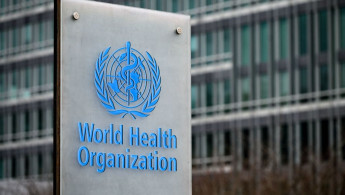WHO assessing risk after fighters seize Sudan lab holding samples of deadly diseases
The World Health Organization said Wednesday it was assessing the threat posed to public health after fighters in Sudan occupied a national laboratory holding samples of deadly diseases.
"We are also concerned that those occupying the lab could be accidentally exposed to pathogens stored there," WHO chief Tedros Adhanom Ghebreyesus told a press conference in Geneva.
"WHO is seeking more information and conducting a risk assessment."
His comments came a day into a 72-hour ceasefire brokered by the United States that was struggling to hold after the regular army launched renewed airstrikes against rival paramilitary forces in the capital Khartoum late on Tuesday.
The nearly two weeks of urban combat has killed hundreds, wounded thousands and sparked a mass exodus of foreigners, while the UN has warned a giant new refugee crisis could be brewing.
But WHO has warned of an additional threat, after it said fighters had occupied a national public laboratory in Khartoum, holding samples of diseases including polio, measles and cholera.
On Tuesday, WHO's representative in Sudan Nima Saeed Abid told reporters this had created an "extremely, extremely dangerous" situation.
"There is a huge biological risk associated with the occupation of the central public health lab."
Olivier le Polain, WHO's incident manager for the Sudan response, told reporters Wednesday that the agency knew there were samples being stored at the lab of pathogens including measles, tuberculosis, cholera, polio and SARS CoV-2, which causes Covid-19 disease.
"The assessment is ongoing to better understand what the public health threats might be with those, and of course, the risk as well of having untrained personnel or untrained individuals in the lab," he said.
WHO emergencies director Michael Ryan said there was always a concern "having untrained personnel in a lab".
"The team on the ground… with our bio-risk and biosafety teams here, are carrying out an extensive risk assessment," he told journalists.
"We want to make sure that the people occupying the building know the risks themselves and we will try to continue to communicate those risks."
He underlined though that "doing any kind of assessment at the moment… is very difficult," pointing out that internet and telephone lines are down and "communications are extremely difficult".
He stressed that the main threat to people in Sudan at the moment was the fighting, including numerous attacks on health care facilities and personnel.
Tedros pointed out that in Khartoum, "61 percent of health facilities are closed and only 16 percent are operating as normal".





 Follow the Middle East's top stories in English at The New Arab on Google News
Follow the Middle East's top stories in English at The New Arab on Google News
![Netanyahu furiously denounced the ICC [Getty]](/sites/default/files/styles/image_330x185/public/2024-11/GettyImages-2169352575.jpg?h=199d8c1f&itok=-vRiruf5)
![Both Hamas and the Palestinian Authority welcomed the ICC arrest warrants [Getty]](/sites/default/files/styles/image_330x185/public/2024-11/GettyImages-2178351173.jpg?h=199d8c1f&itok=TV858iVg)
